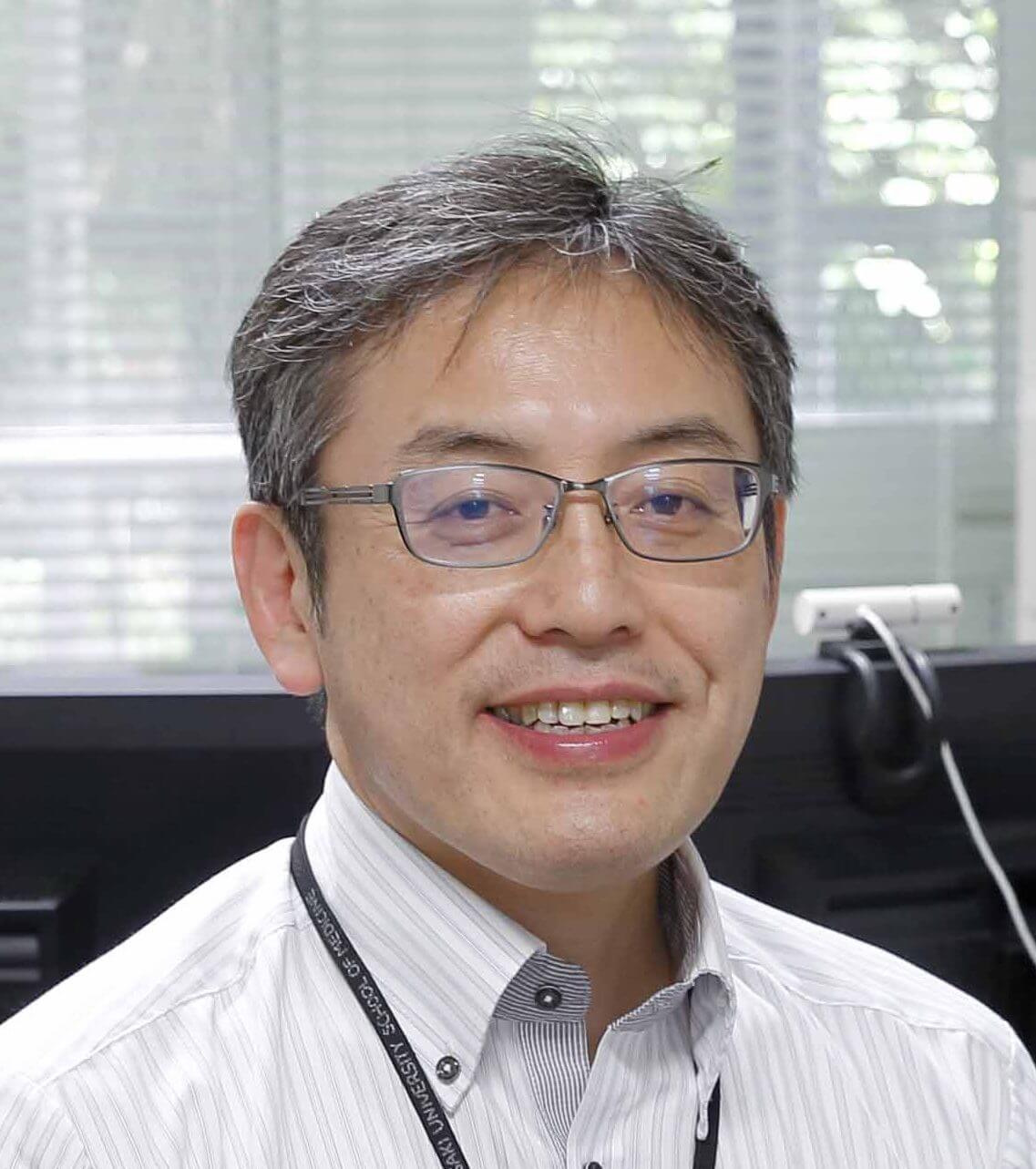取得学位・資格
M.D.,M.P.H.,Ph.D
個人/所属ウェブページ
- http://www.tm.nagasaki-u.ac.jp/nekken/english/research/eco-epidemiology.html
- http://www.tm.nagasaki-u.ac.jp/multiplex/
他所属
- Institute of Tropical Medicine, Nagasaki University
- Visiting lecturer of Tohoku University
- Visiting scientist of Osaka Kyoiku University
Other titles
- Associate Editor of Journal of Epidemiology
- Councilor of Japanese Society of Tropical Medicine
- JICA Consultant, Sri Lanka Non-communicable disease management project
経歴
- Graduated from the National Defense Medical College, Saitama, Japan in 1990
- JICA expert in the Tropical Disease Control Project for Chagas disease in Guatemala in 1995
- Master of Public Health (MPH) degree from Harvard School of Public Health, Boston, Massachusetts, U.S.A in 1997.
- PhD degree from the Graduate School of Medical Science, University of Occupational and Environmental Health, JAPAN (UOEH), Kitakyushu, JAPAN in 2001
- Head of Cancer Surveillance Section, Statistics and Cancer Control Division in National Cancer Center, Tokyo from 2001 until 2005
- Professor (Fixed-term) at Institute of Tropical Medicine, Nagasaki University since 2005 to present (Between 2006 and 2010, appointed at Nairobi Research Station, Nagasaki University)
- Professor at Nagasaki University Graduate School of International Health Development since 2008 to present
教育活動
- Professor (Fixed-term) at Institute of Tropical Medicine, Nagasaki University since 2005 to present (Between 2006 and 2010, appointed at Nairobi Research Station, Nagasaki University)
- Professor at Nagasaki University Graduate School of International Health Development since 2008 to present
研究活動
- Development of microsphere-based simultaneous multiple assays and surveillance systems for multiple infectious diseases in Africa.
- Health and Demographic Surveillance System (HDSS) in Lao PDR.
- Epidemiological studies for child health in Kenya.
- Research on dengue prevention through a residential environmental clean-up program in Sri Lanka.
- Finding malaria vaccine candidate antigens using microsphere-based simultaneous multiple assays.
- A scientific approach to community-led total sanitation strategies in Africa.
- Non-communicable disease (NCD) project by JICA in Sri Lanka.
- Developing epidemiological data-collection tools using the cutting edge IT technology to monitor health-related problems in developing world; e.g., biometrics (vein authentication) to identify people and link different data sources (link: here)
現在の主な研究活動地域
- Africa
- Asia
最近の5つの出版物
- Shinsugi C, Matsumura M, Karama M, Tanaka J, Changoma M, Kaneko S. Factors associated with stunting among children according to the level of food insecurity in the household: a cross-sectional study in a rural community of Southeastern Kenya. BMC public health 2015; 15(1): 441-51.(2015)
- Fujii Y, Kaneko S, Nzou SM, Mwau M, Njenga SM, Tanigawa C, Kimotho J, Mwangi AW, Kiche I, Matsumoto S, Niki M, Osada-Oka M, Ichinose Y, Inoue M, Itoh M, Tachibana H, Ishii K, Tsuboi T, Yoshida LM, Mondal D, Haque R, Hamano S, Changoma M, Hoshi T, Kamo K, Karama M, Miura M, Hirayama K. Serological surveillance development for tropical infectious diseases using simultaneous microsphere-based multiplex assays and finite mixture models. PLoS neglected tropical diseases 2014 Jul; 8(7): e3040.(2014)
- Miura M, Tanigawa C, Fujii Y, Kaneko S. Comparison of six commercially-available DNA polymerases for direct PCR. Rev Inst Med Trop Sao Paulo 2013 Nov-Dec; 55(6): 401-6.(2013)
- Kaneko S, K’Opiyo J, Kiche I, Wanyua S, Goto K, Tanaka J, Changoma M, Ndemwa M, Komazawa O, Karama M, Moji K, Shimada M. Health and Demographic Surveillance System in the Western and Coastal Areas of Kenya: An Infrastructure for Epidemiologic Studies in Africa. J Epidemiol 2012 Feb 25; 22(3): 276-85.(2012)
- Komazawa O, Kaneko S, K’Opiyo J, Kiche I, Wanyua S, Shimada M, Karama M. Are Long-Lasting Insecticidal Nets Effective for Preventing Childhood Deaths among Non-Net Users? A Community-Based Cohort Study in Western Kenya. PloS one 2012; 7(11): e49604.(2012)
メッセージ
現場から学ぶ。そこからすべてが始まります。何が問題なのか?解決するためには何が必要なのか?そのためには,“知識”と”ツール“が必要です。そして,それらを真摯な姿勢で観察し,科学的に解明しようとする姿勢。現在われわれの抱えている多くの問題には,用意された解答はありません。本研究科では,「”現場“から”アカデミックの場“へ,そして”アカデミックの場“から”現場“へ」を目指しています。ともに,学び,実践し,さらに研究へと展開させ,そして実践に帰る。一緒に未知の世界を目指してみませんか?

